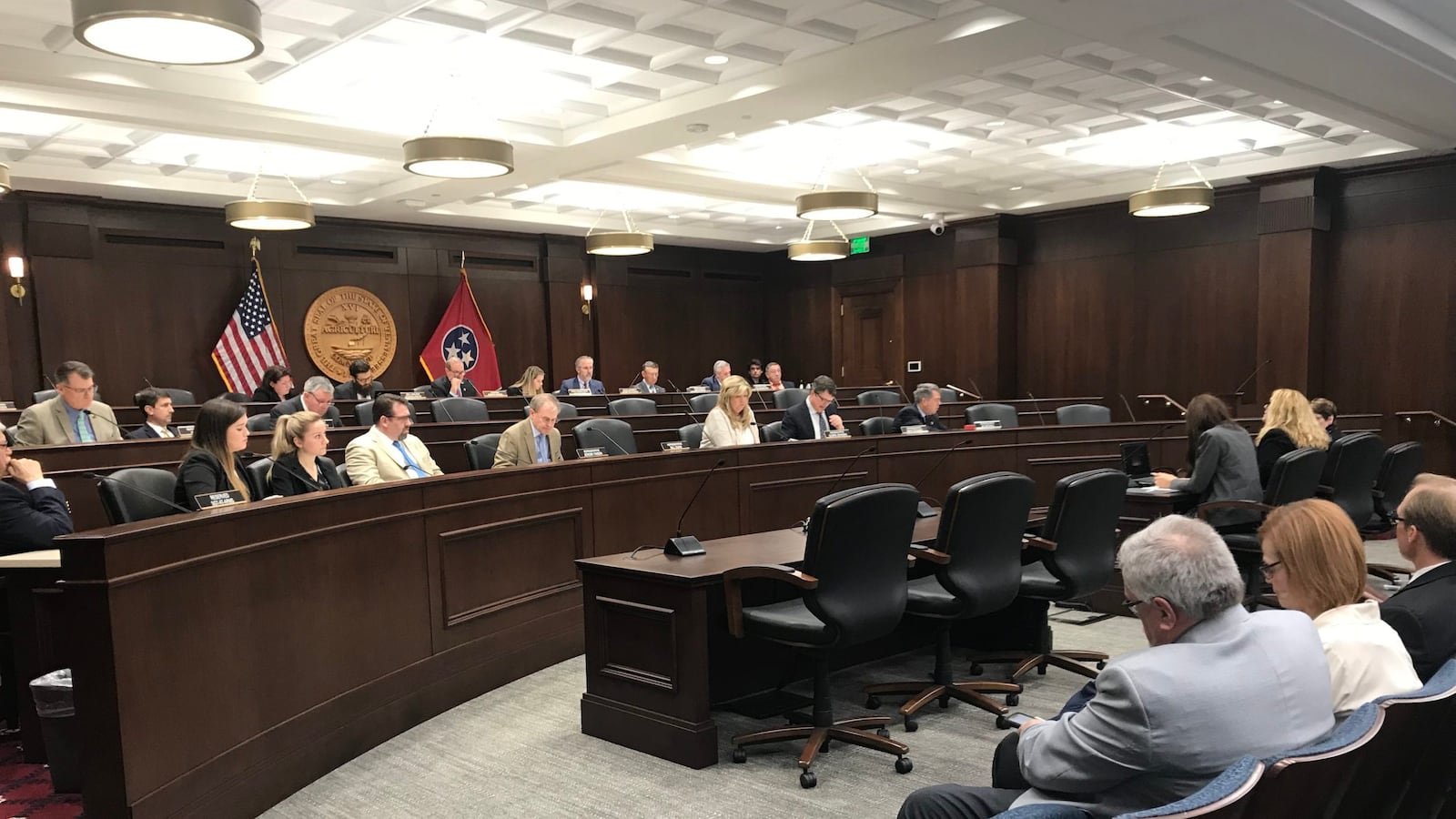A Nashville lawmaker wants Tennessee’s chief internal investigator to look into how the Department of Education is paying for the early rollout of Gov. Bill Lee’s education savings account program.

Rep. Bo Mitchell, who opposes vouchers, hand-delivered a letter Tuesday to Comptroller Justin P. Wilson’s office asking for the probe.
His request comes one day after he and other Democrats pressed Education Commissioner Penny Schwinn during a legislative hearing about where the money is coming from to launch the program a year earlier than required by a 2019 law.
The Republican governor ordered the early rollout last summer but set aside only $771,300 for voucher work in the 2019-20 budget approved last spring. The education department has since signed a two-year contract for $2.5 million with ClassWallet, a Florida-based vendor hired to manage online accounts and applications for the voucher program.
The issue is important because of a provision in Tennessee’s Constitution that renders a state law null and void if it requires new state funds but isn’t accompanied by a big enough allocation to cover first-year costs. That could be the basis for a second lawsuit to try to upend the controversial law. Last week, Metro Nashville and Shelby County governments filed litigation in the case, arguing that the law is unconstitutional because it applies only to their communities, not the entire state.
The education department irked many lawmakers when it signed the ClassWallet contract last fall without going through competitive bids or the legislature’s Fiscal Review Committee.
Last month, Lee told reporters that he was “comfortable” with the process and had consulted with the state attorney general’s office about the contract. “My direction to our department is that we get the right vendor. And if we have to make adjustments, we will, but that we get the right vendor,” he said.
During Monday’s hearing before the legislature’s Government Operations Committee, Schwinn said the ClassWallet decision was allowable because it was set up through a grant process. And during a separate hearing on Tuesday before a House finance panel, Christy Ballard, the department’s attorney, added that ClassWallet “was the only vendor that could meet the state requirements … on our timeline at the price point that was needed.”
To help cover the costs, department officials have said they tapped $1.5 million from a defunct merit-based teacher pay program that began in the 1980s under Gov. Lamar Alexander’s administration.
But the department also has struggled to cover the cost of staffing necessary to launch the program early. While Schwinn said she couldn’t speak to that challenge, Mitchell is asking the comptroller to reveal all funding sources for any employees whose responsibilities have been shifted to do voucher work.
“Please provide a full list of all funding sources used to pay for ESA program-related expenses, including personnel and contracts,” Mitchell wrote in his letter. “This includes all federal, state, and private funding streams.”
The comptroller is part of Tennessee’s legislative branch and serves essentially as the state’s independent “money cop.” When a legislator asks for an investigation, the office reviews the request and generally decides in a matter of weeks if a probe is merited.
The education savings account law — passed in one of the most contentious legislative battles in recent history — authorizes creation of a voucher program for up to 5,000 students in its first year. Their families will be able to use an average of $7,000 in taxpayer money to pay for private school tuition and fees.
To be eligible, students must be zoned for Shelby County Schools, Metropolitan Nashville Public Schools, or the state’s Achievement School District, and must be attending a public Tennessee school this school year or entering kindergarten next year. The family’s household income also must not exceed double what’s needed to qualify for free lunch under federal guidelines — or about $65,000 annually for a family of four.
Below, you can read Mitchell’s letter:


